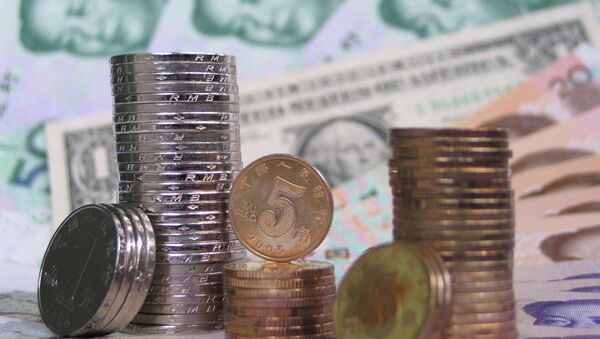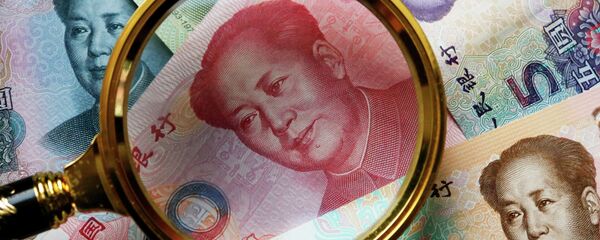Wednesday’s additional 1 percent devaluation resulted in the largest two-day lowering of the yuan in more than two decades.
“China is facing considerable problems because of weakening economy and one of it is the downturn in exports. Chinese exports fell 8.3% year on year so I think that was one trigger that resulted in the decision that was made this week for the devaluation of the Chinese yuan against the US dollar,” Biswas told Sputnik.
However, the economist noted that China has benefited from the current situation as yuan devaluation helped the country's competitiveness in the US.
“Other currencies have also fallen in line with Chinese currency against the US dollar so that's the only thing that China has benefited in. Its exchange rate against the US dollar has come down a bit which somewhat helps its competitiveness in the US.”
So it is a situation of competitive depreciation. “I think the problem is that they have broken this stability that they had for some years with the US dollar. Its creating shockwaves as China being the second largest economy in the world has broken that stability,” Biswas said.
“China has been trying very hard to maintain a stable exchange rate against the US dollar for some years, at the time when euro fell very substantially against the US dollar. In the last twelve months the yen has fallen also quite substantially against the US dollar since 2012 when Prime Minister Abe took office. China’s currency adjustment is relatively minor compared to those very big moves by the euro and the yen,” the expert added.
He said that China should receive some credit for trying to keep its currency stable against the US dollar but now confronted with a weakening economy and weak export sector they had to react in the way they did.
Regarding the current situation of the Chinese economy Biswas said, “What will help China now is monetary stimulus by cutting interest rates more and some significant fiscal stimulus to try to revive domestic demand. I don’t think the currency devaluation will have a positive result as it is sending shock wave on other currencies is resulting in no net change.”



